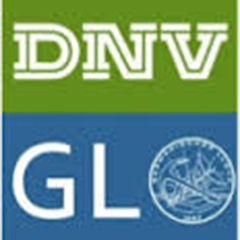- The new battery standard, once adopted, will address consumers’ dilemma of which energy storage system is best suited to residential and small-scale commercial applications
- To support the proposed standard, the project consortium will be releasing an interim best practice guide
Melbourne, Australia, 16 June 2020 – DNV GL, the world’s largest resource of independent energy experts and certification body, today announced the completion of the Australian Battery Performance Standard (ABPS) project which started development in 2018.
A draft standard addressing which energy storage system is best suited to residential and small-scale commercial applications has been submitted by DNV GL on behalf of the ABPS project consortium comprising of leading Australian energy organizations, the Commonwealth Scientific and Industrial Research Organisation (CSIRO), Deakin University and the Smart Energy Council, led by DNV GL.
According to the Department of Industry, Science, Energy and Resources, Australia has the highest uptake of solar globally, with 2.37 million or 21% of all homes with rooftop photovoltaics (PV) systems installed. Installation of domestic battery storage is currently being held back, in part, by the difficulty end-customers face in choosing the right battery system for their needs.
To address this, the draft standard specifies key performance metrics for manufacturers to report on in a consistent way, which will make it easier for consumers to compare battery energy storage systems. The metrics will include properties such as maximum and sustained power, capacity and efficiency which are all typical metrics in battery testing, but not always reported by battery system manufacturers or measured in the same manner. Test protocols have been designed specifically to provide battery performance data relevant to Australian conditions, so that it suits the range of Australian climates, and solar PV production patterns.
This draft standard was submitted to Standards Australia after a comprehensive two-year development process which received $1.44 million in funding from the Australian Renewable Energy Agency (ARENA) through its Advancing Renewables Program, and the Victorian Government through its New Energy Jobs Fund.
ARENA CEO Darren Miller said: “Energy storage is shaping up to be an important feature of our rapidly evolving energy system. As rooftop solar penetration continues to increase, and more people look to store their solar energy during the day and minimize what they consume from the grid in the evening, it is important that consumers are informed about how well batteries perform over their lifetime to aid their investment decision.”
Nicolas Renon, Executive Vice President Asia Pacific Region, at DNV GL – Energy said: “The adoption of this standard will help the consumers’ dilemma of choosing the energy storage system best suited to their needs, and empower them to play their part in moving towards a cleaner future.”
To support the draft standard, the project consortium will be releasing an interim best practice guide, which can be used until such time as the standard is adopted. This will include a step-by-step description of how to carry out the necessary testing, along with background information on how to confirm with the best practice guide until the standard is made official by Standards Australia.
The consortium also discovered that no performance standard for batteries connected to domestic/small commercial solar PV exists anywhere in the world, so this standard has the potential to become a new global standard once in effect.
To learn more about the project, please visit www.dnvgl.com/abps
About DNV GL
DNV GL is a global quality assurance and risk management company. Driven by its purpose of safeguarding life, property and the environment, the company enables customers to advance the safety and sustainability of their business. DNV GL provides classification, technical assurance, software and independent expert advisory services to the maritime, oil & gas, power and renewables industries. The company also provides certification, supply chain and data management services to customers across a wide range of industries. Operating in more than 100 countries, DNV GL experts are dedicated to helping customers make the world safer, smarter and greener.
DNV GL delivers world-renowned testing, certification and advisory services to the energy value chain including renewables and energy management. The company’s expertise spans onshore and offshore wind power, solar, conventional generation, transmission and distribution, smart grids, and sustainable energy use, as well as energy markets and regulations. Its experts support customers around the globe in delivering a safe, reliable, efficient, and sustainable energy supply.
Learn more at www.dnvgl.com/power-renewables



























